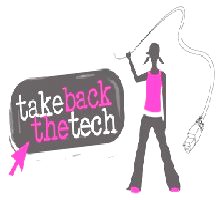Electronic Violence Against Women
 I recently attended a national strategy workshop aimed at engendering a Philippine action plan to address Electronic Violence Against Women (eVAW). Entitled STOP eVAW NOW! and with the theme, Reclaiming ICTs to End Violence Against Women (Take Back the Tech), the workshop-conference was attended by the different government agencies tasked with enforcing the current Philippine laws for the protection of women against violence. Also present were many non-government organizations (NGOs) working for the protection and care of women and some representatives of the legislative branch of our government. The event was organized by the Foundation for Media Alternatives and supported by the global Association for Progressive Communications.
I recently attended a national strategy workshop aimed at engendering a Philippine action plan to address Electronic Violence Against Women (eVAW). Entitled STOP eVAW NOW! and with the theme, Reclaiming ICTs to End Violence Against Women (Take Back the Tech), the workshop-conference was attended by the different government agencies tasked with enforcing the current Philippine laws for the protection of women against violence. Also present were many non-government organizations (NGOs) working for the protection and care of women and some representatives of the legislative branch of our government. The event was organized by the Foundation for Media Alternatives and supported by the global Association for Progressive Communications.
Electronic violence is defined in the workshop as using information and communications technology (ICT) to track and harass someone, causing emotional distress and fear for their personal safety. The acts include transmitting threats or false accusations through blogs, in chat rooms, or via mobile phones. Electronic violence also include sending repeated and unwanted communications with sexual undertones, stealing identity or data and spying and monitoring their computer and internet use without permission. Sometime, these violence escalate into reality and can seriously impair one’s capacity to participate and use ICT without apprehension or fear.
I was invited to attend the workshop as a resource person for the internet café (i-café) industry in the country. Acknowledged as the main provider of access to the Internet, i-cafés are often suspected as the “scenes of the crime” for some of the electronic violence described above especially online harassment. While we cannot totally deny such accusation, I emphasized to the body that right to privacy of i-café customers has to be respected and the detection of such unlawful acts cannot be made the responsibility of an i-café owner.




Latest Feedbacks